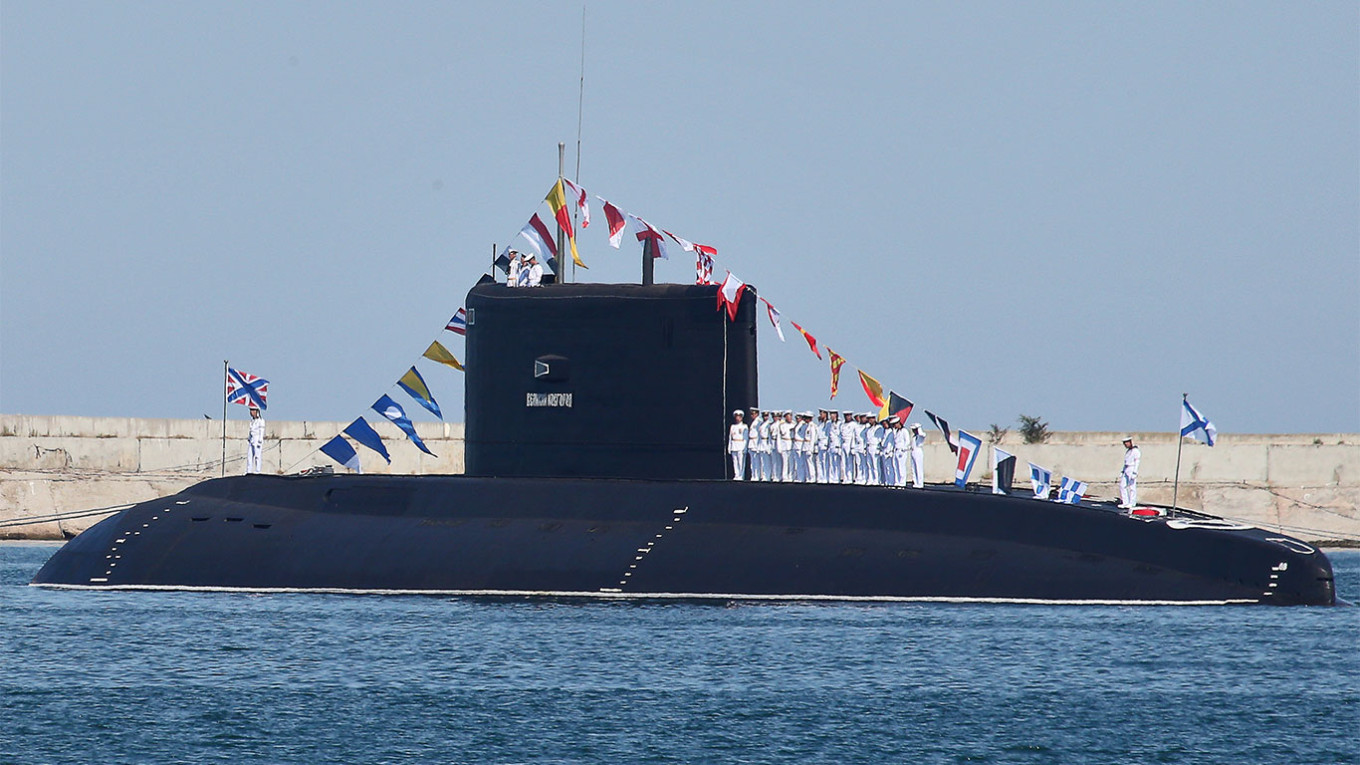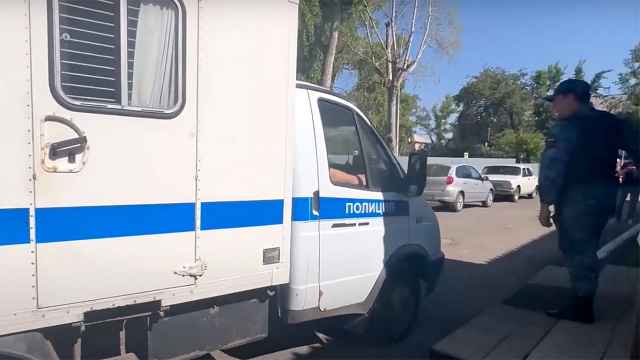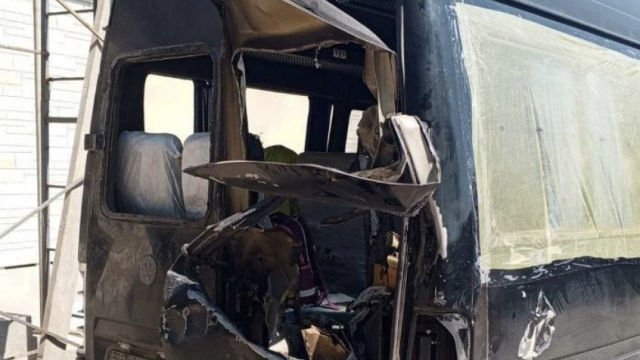A few days after Russia launched its invasion of neighboring Ukraine, Russian conscript sailor Mark Tarasov wrote to his mother in St. Petersburg from aboard the Black Sea Fleet’s flagship, the Moskva.
“I'm fine. Alive. We are all good. I don’t really know what is happening in the world right now, only in basic terms,” he wrote, according to a photograph posted by his mother on social media network VKontakte.
“I can't wait to get back [home], nine more months left.”
Less than two months later, a pair of Ukrainian anti-ship missiles struck the Moskva in the seas off Odesa, causing a large fire. Eventually, the ship sank.
The sinking of the Moskva, the pride of Russia’s Black Sea Fleet, was the first in a series of symbolic setbacks suffered by the fleet in the 200 days since Moscow ordered troops into its pro-Western neighbor.
Defeats at sea and on land have significantly reduced the fleet’s offensive capabilities and — according to reports — led to the removal of its commander.
One Western official reportedly said last month that, as a result of its losses, the Black Sea Fleet was now little more than a “coast defense flotilla.”
Particularly noticeable has been the destruction of men and equipment in Ukrainian attacks, including at least 10 naval vessels, according to Oryx, an intelligence blog that tracks Russian military losses.
“With the loss of the Moskva, hundreds of marines and a number of other ships, the fleet likely no longer has the combat power to support fully cutting Ukraine off from the Black Sea,” said independent military analyst Pavel Luzin.
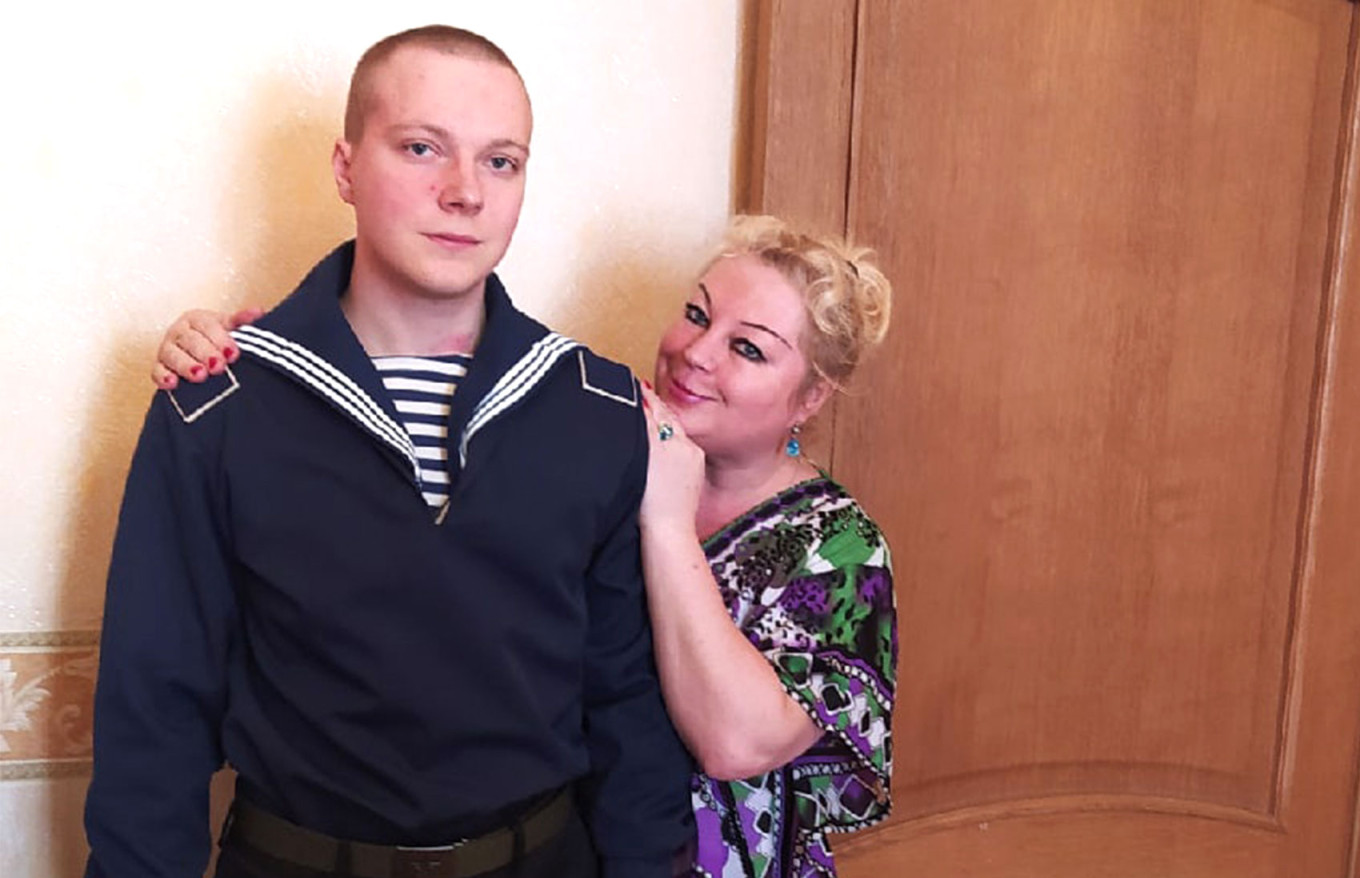
A Ukrainian missile sank the landing ship Saratov in the Russian-occupied Ukrainian port city of Berdyansk in March and Ukraine has since damaged or destroyed five patrol boats, according to Oryx.
The rescue tug Vassily Bekh was sunk in June as it delivered weapons and personnel to Snake Island, the strategic outpost which was later abandoned by Russian forces.
Perhaps most symbolically, the Black Sea Fleet’s headquarters in the Crimean port city of Sevastopol has been attacked not once — but twice.
An apparent drone strike in late July resulted in six casualties and the cancellation of planned Navy Day celebrations. Three weeks later, another drone hit the same building, sending a plume of black smoke into the sky.
In addition to the loss of naval vessels, the Black Sea Fleet has also seen the destruction of other military equipment and a high level of personnel casualties.
More than half of the Black Sea Fleet’s combat jets were put out of use last month when a series of explosions took place at Saki air base in Crimea, according to an assessment by an unidentified Western official quoted by Reuters.
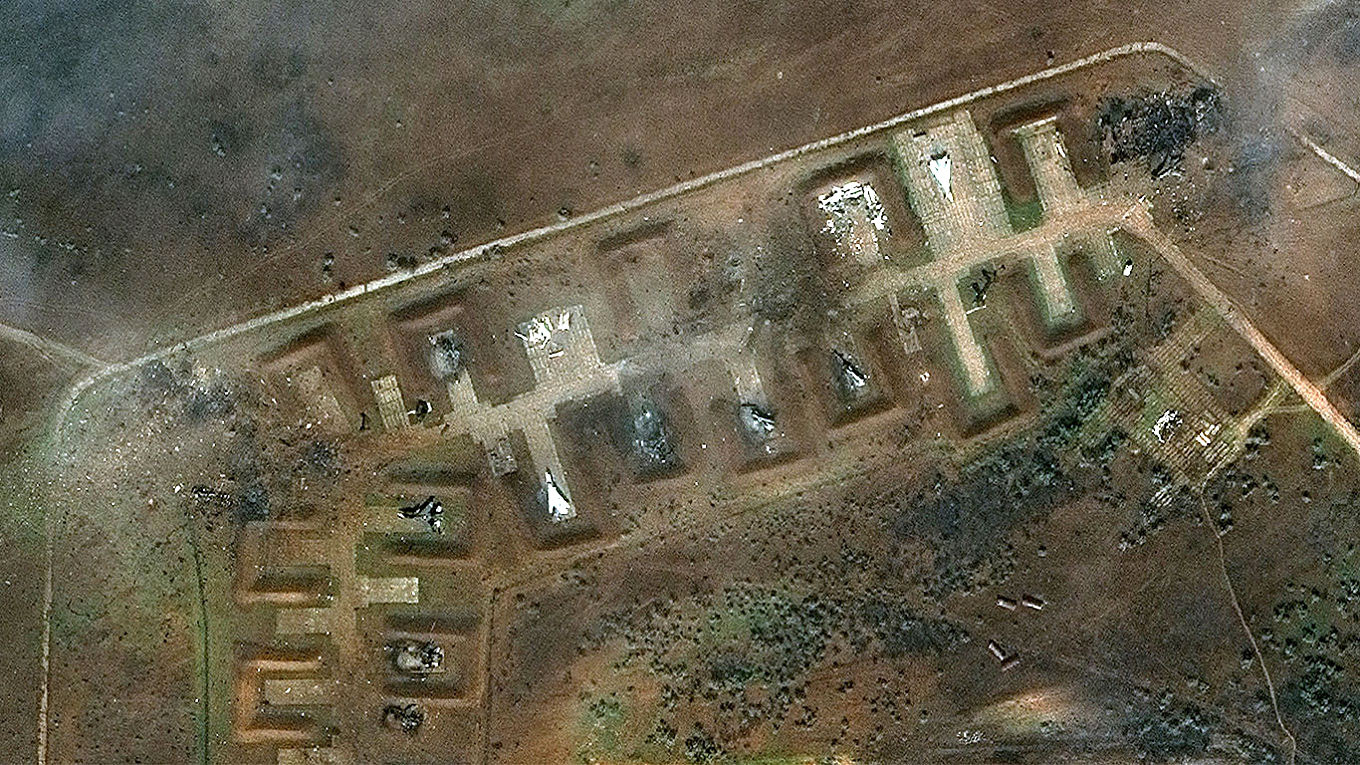
And the Black Sea Fleet’s specialized 810th Guards Naval Infantry Brigade reportedly took hundreds of casualties when it fought as part of Russian forces attacking the Ukrainian city of Mariupol.
As of July, the brigade had lost over 66 people, according to news outlet Krym Realii, an affiliate of U.S.-funded Radio Free Europe/Radio Liberty, while Ukrainian intelligence claimed last month the figure was closer to 300. Among the brigade’s dead was its commander Colonel Alexei Sharov, reportedly killed on March 22 in Mariupol.
Designed to project Russian naval power over former Soviet countries and the eastern Mediterranean, the Black Sea Fleet’s frailties have been brutally exposed since Russia launched its invasion of Ukraine in February,
Analysts said one reason for the fleet's poor performance was that many of its ships and systems were in need of modernization.
While smaller than Russia’s Baltic or Pacific fleets, the pre-war Black Sea Fleet consisted of about 50 vessels, around 4,000 marines and a small air wing.
Its mounting losses of men and materiel were likely a factor in Moscow’s recent decision to shake up the fleet’s military command, experts said.
Igor Osipov was removed as Black Sea Fleet commander and replaced by Vice Admiral Victor Sokolov last month, according to state-run media. Although the fleet initially denied the reports, Sokolov, who was the deputy commander of Russia’s Northern Fleet between 2013 and 2020, later confirmed his appointment.
“Poor preparation, apparent carelessness, and a general lackadaisical attitude of the Black Sea Fleet likely led” to Osipov’s firing, Michael Kofman, director of the Russia Studies Program for the Virginia-based think tank CNA, told Politico last month.
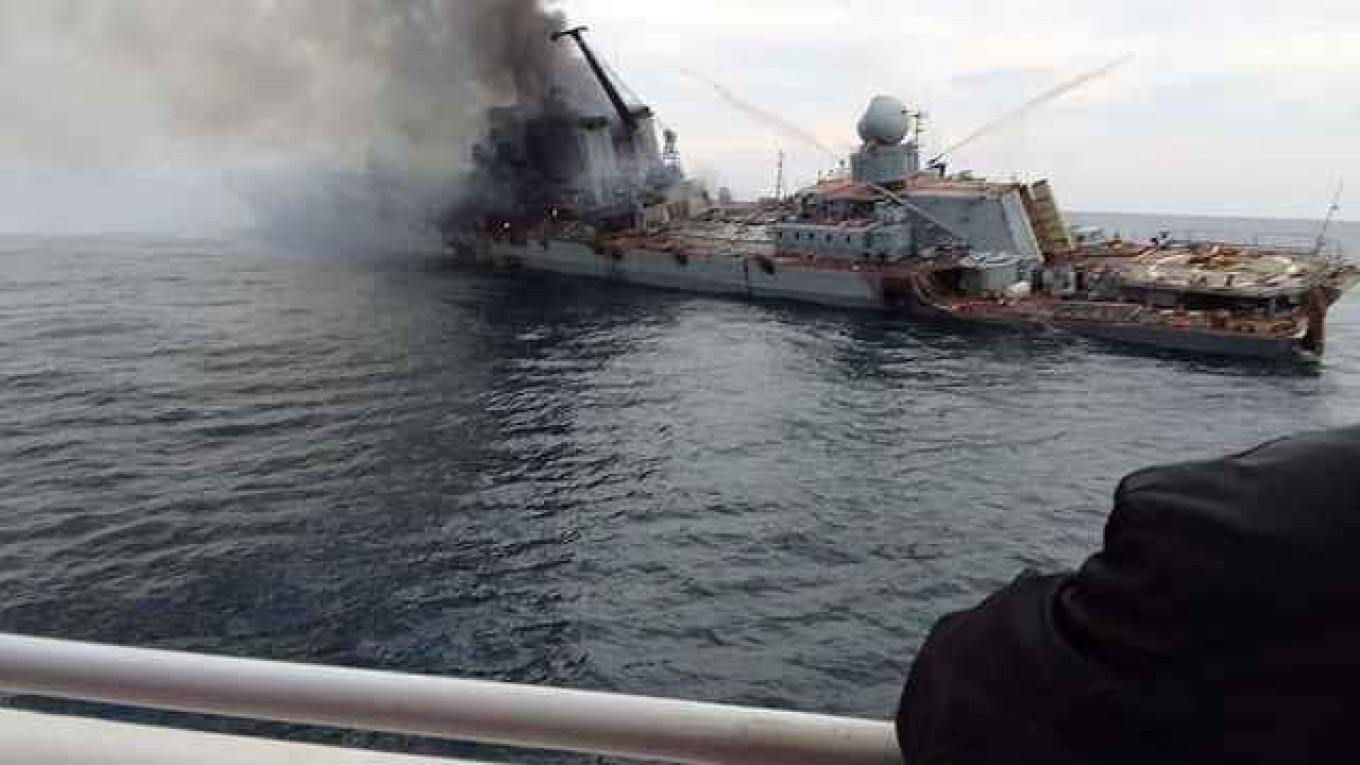
While Sokolov may introduce a new approach, his options are limited because Russia has no way to reinforce the fleet after Turkey closed the Bosphorus and Dardanelles straits to Russian warships in March.
“The problem is that not all ships in the Black Sea Fleet are there,” naval analyst Ben Claremont told The Moscow Times, adding that a key absence was the Admiral Grigorovich, a modern frigate launched in 2014.
Russia is particularly spread thin in terms of modern air defense capabilities in the area, analysts said, with regular reports of Ukrainian drones over the Crimean peninsula.
With reductions to its strength and difficulties with reinforcements, the Black Sea Fleet is left with few significant roles apart from blockading Ukrainian ports and continuing to launch cruise missiles many dozens of miles from the Ukrainian coast.
Many of the almost 4,000 missiles fired into Ukraine since the beginning of the invasion have been Kalibr ship-launched missiles fired from Russian frigates and submarines in the Black Sea.
Sailors with the Black Sea Fleet and their relatives declined to comment on the travails of one of Russia’s most prestigious naval units when contacted by The Moscow Times.
“My commander won’t allow it,” said one sailor in response to a message.
But the loss of the flagship Moskva and the fate of its crew — which Moscow initially said had been fully evacuated before its sinking — remains a particularly sensitive topic.
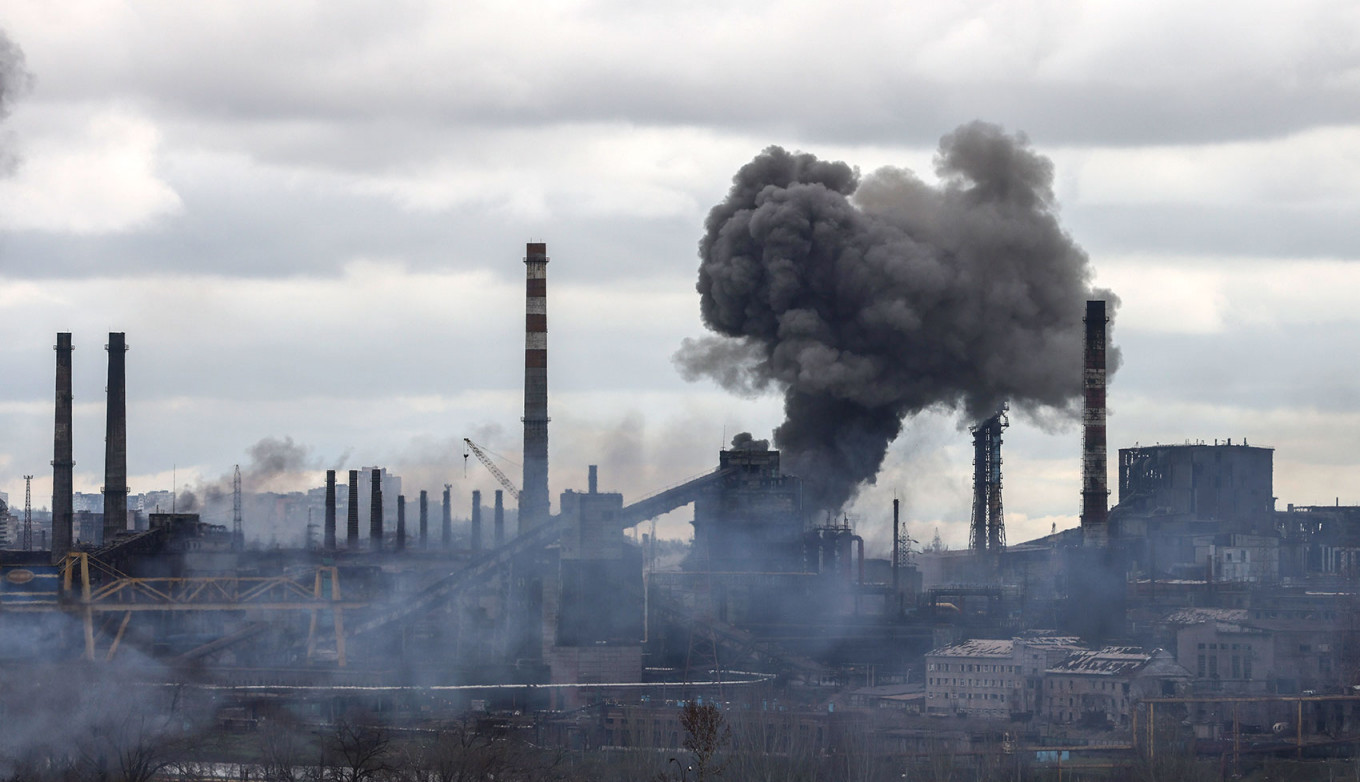
Russia’s Defense Ministry later said one crew member was killed and 27 were missing — but the families of at least five sailors on the ship have reportedly received death notices.
Among those confirmed dead is cook Yegor Shkrebets, whose family finally received an official death certificate 110 days after the sinking.
“I have a lot of questions when it comes to the rescue operation. I doubt it was carried out as it should have been,” Shkrebets’s father told The Moscow Times.
Ulyana Tarasova, whose son Mark Tarasov was on the Moskva when it went down, did not reply to messages from The Moscow Times, but social media posts suggest she is still awaiting confirmation of what happened to her child.
Tarasova voiced her anger in April about the seemingly contradictory nature of Moscow's war slogan, “We don't give up on our own.”
“‘We don't give up on our own’ definitely doesn’t apply to the Black Sea Fleet,” the bereaved mother posted on VKontakte.
A Message from The Moscow Times:
Dear readers,
We are facing unprecedented challenges. Russia's Prosecutor General's Office has designated The Moscow Times as an "undesirable" organization, criminalizing our work and putting our staff at risk of prosecution. This follows our earlier unjust labeling as a "foreign agent."
These actions are direct attempts to silence independent journalism in Russia. The authorities claim our work "discredits the decisions of the Russian leadership." We see things differently: we strive to provide accurate, unbiased reporting on Russia.
We, the journalists of The Moscow Times, refuse to be silenced. But to continue our work, we need your help.
Your support, no matter how small, makes a world of difference. If you can, please support us monthly starting from just $2. It's quick to set up, and every contribution makes a significant impact.
By supporting The Moscow Times, you're defending open, independent journalism in the face of repression. Thank you for standing with us.
Remind me later.




